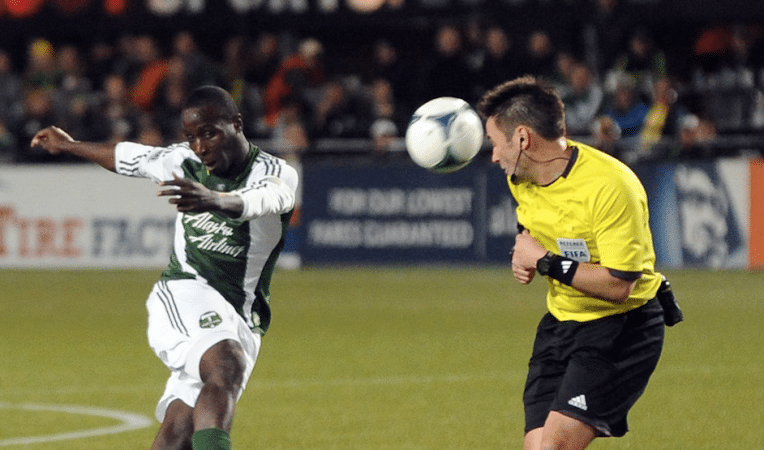Referees were never meant to be the stars of football games and many believe the best match official is the one nobody talks about after the final whistle, writes PSL referee Daniel Bennett in SoccerClub magazine.
Unfortunately this can’t always be the case, which is why everyone involved should always accept that referees are an integral part of a match.
In most cases, match officials assist in the flow of the game and ensure a fair outcome, but sometimes, unintentionally, they can have a negative impact by getting in the way of players or the ball. An even worse scenario is getting struck by the ball, resulting in a team gaining or conceding possession, or preventing players from getting into position.
This unfortunate situation played itself out in Bloemfontein Celtic’s home fixture against Golden Arrows in late September, when referee Olani Kwinda accidentally interfered with play just outside the Celtic penalty area.
It was Phunya Sele Sele’s rotten luck that after weathering a sustained spell of pressure they finally managed to clear the ball. Sadly for them, though, the referee was inadvertently in the way, resulting in the ball falling neatly into the path of Arrows’ Wayde Jooste, who netted the winner shortly before full-time.
It’s unfortunate when this happens but the Laws of the Game state that the match officials are part of the game and if the ball hits a referee or assistant referee (while on the field), play must continue. For me, it’s an increasingly difficult situation as Fifa and Caf instructors are advising referees to get as close to the action as possible (even inside the penalty area) and this makes it more difficult to stay out of the players’ way and not interfere with the ball.
I remember watching a school football match where the ball actually deflected into the net off the referee and this, according to the Laws, was a perfectly legitimate goal. If that had happened in a more high-profile match, I am sure there wouldn’t have been as much empathy or support for that match official, particularly from the team on the receiving end.
The only way to get around this issue would be to consider the referee as not being part of the game and for a drop ball to be given if the ball rebounds off him (as would be the case if an ‘outside agent’, such as a dog or a spectator, runs on to the field and interferes with play).
This is the situation in rugby. I would propose, especially where the interference impacts the result of a match, that a drop ball be awarded; but where advantage can be applied, let play carry on. This would obviously be at the referee’s own discretion and for the benefit of the game, especially if his interference disadvantages either team.
– This article first appeared in Issue 75 of SoccerClub magazine




